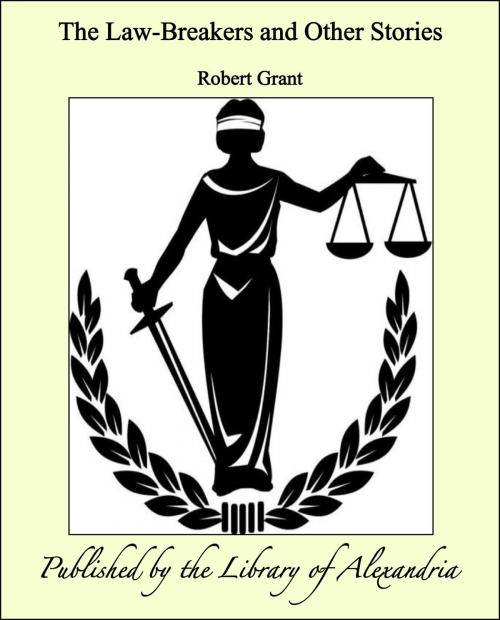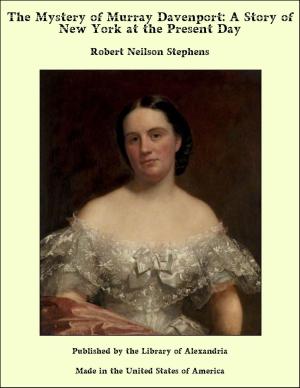The Law-Breakers and Other Stories
Nonfiction, Religion & Spirituality, New Age, History, Fiction & Literature| Author: | Robert Grant | ISBN: | 9781465560605 |
| Publisher: | Library of Alexandria | Publication: | July 29, 2009 |
| Imprint: | Library of Alexandria | Language: | English |
| Author: | Robert Grant |
| ISBN: | 9781465560605 |
| Publisher: | Library of Alexandria |
| Publication: | July 29, 2009 |
| Imprint: | Library of Alexandria |
| Language: | English |
George Colfax was in an outraged frame of mind, and properly so. Politically speaking, George was what might be called, for lack of a better term, a passive reformer. That is, he read religiously the New York Nation, was totally opposed to the spoils system of party rewards, and was ostensibly as right-minded a citizen as one would expect to find in a Sabbath day’s journey. He subscribed one dollar a year to the civil-service reform journal, and invariably voted on Election Day for the best men, cutting out in advance the names of the candidates favored by the Law and Order League of his native city, and carrying them to the polls in order to jog his memory. He could talk knowingly, too, by the card, of the degeneracy of the public men of the nation, and had at his finger-ends inside information as to the manner in which President This or Congressman That had sacrificed the ideals of a vigorous manhood to the brass idol known as a second term. In fact, there was scarcely a prominent political personage in the country for whom George had a good word in every-day conversation. And when the talk was of municipal politics he shook his head with a profundity of gloom which argued an utterly hopeless condition of affairs—a sort of social bottomless pit. And yet George was practically passive. He voted right, but, beyond his yearly contribution of one dollar, he did nothing else but cavil and deplore. He inveighed against the low standards of the masses, and went on his way sadly, making all the money he could at his private calling, and keeping his hands clean from the slime of the political slough. He was a censor and a gentleman; a well-set-up, agreeable, quick-witted fellow, whom his men companions liked, whom women termed interesting. He was apt to impress the latter as earnest and at the same time fascinating—an alluring combination to the sex which always likes a moral frame for its fancies. It was to a woman that George was unbosoming his distress on this particular occasion, and, as has been already indicated, his indignation and disgust were entirely justified. Her name was Miss Mary Wellington, and she was the girl whom he wished with all his heart to marry. It was no hasty conclusion on his part. He knew her, as he might have said, like a book, from the first page to the last, for he had met her constantly at dances and dinners ever since she “came out” seven years before, and he was well aware that her physical charms were supplemented by a sympathetic, lively, and independent spirit. One mark of her independence—the least satisfactory to him—was that she had refused him a week before; or, more accurately speaking, the matter had been left in this way: she had rejected him for the time being in order to think his offer over. Meanwhile he had decided to go abroad for sixty days—a shrewd device on his part to cause her to miss him—and here he was come to pay his adieus, but bubbling over at the same time with what he called the latest piece of disregard for public decency on the part of the free-born voter. “Just think of it. The fellow impersonated one of his heelers, took the civil-service examination in the heeler’s name, and got the position for him. He was spotted, tried before a jury who found him guilty, and was sentenced to six months in jail. The day he was discharged, an admiring crowd of his constituents escorted him from prison with a brass band and tendered him a banquet. Yesterday he was chosen an alderman by the ballots of the people of this city. A self-convicted falsifier and cheat! A man who snaps his fingers in the face of the laws of the country! Isn’t that a commentary on the workings of universal suffrage?” This was a caustic summing up on George’s part of the story he had already told Miss Wellington piecemeal, and he looked at her as much as to ask if his dejection were not amply justified
George Colfax was in an outraged frame of mind, and properly so. Politically speaking, George was what might be called, for lack of a better term, a passive reformer. That is, he read religiously the New York Nation, was totally opposed to the spoils system of party rewards, and was ostensibly as right-minded a citizen as one would expect to find in a Sabbath day’s journey. He subscribed one dollar a year to the civil-service reform journal, and invariably voted on Election Day for the best men, cutting out in advance the names of the candidates favored by the Law and Order League of his native city, and carrying them to the polls in order to jog his memory. He could talk knowingly, too, by the card, of the degeneracy of the public men of the nation, and had at his finger-ends inside information as to the manner in which President This or Congressman That had sacrificed the ideals of a vigorous manhood to the brass idol known as a second term. In fact, there was scarcely a prominent political personage in the country for whom George had a good word in every-day conversation. And when the talk was of municipal politics he shook his head with a profundity of gloom which argued an utterly hopeless condition of affairs—a sort of social bottomless pit. And yet George was practically passive. He voted right, but, beyond his yearly contribution of one dollar, he did nothing else but cavil and deplore. He inveighed against the low standards of the masses, and went on his way sadly, making all the money he could at his private calling, and keeping his hands clean from the slime of the political slough. He was a censor and a gentleman; a well-set-up, agreeable, quick-witted fellow, whom his men companions liked, whom women termed interesting. He was apt to impress the latter as earnest and at the same time fascinating—an alluring combination to the sex which always likes a moral frame for its fancies. It was to a woman that George was unbosoming his distress on this particular occasion, and, as has been already indicated, his indignation and disgust were entirely justified. Her name was Miss Mary Wellington, and she was the girl whom he wished with all his heart to marry. It was no hasty conclusion on his part. He knew her, as he might have said, like a book, from the first page to the last, for he had met her constantly at dances and dinners ever since she “came out” seven years before, and he was well aware that her physical charms were supplemented by a sympathetic, lively, and independent spirit. One mark of her independence—the least satisfactory to him—was that she had refused him a week before; or, more accurately speaking, the matter had been left in this way: she had rejected him for the time being in order to think his offer over. Meanwhile he had decided to go abroad for sixty days—a shrewd device on his part to cause her to miss him—and here he was come to pay his adieus, but bubbling over at the same time with what he called the latest piece of disregard for public decency on the part of the free-born voter. “Just think of it. The fellow impersonated one of his heelers, took the civil-service examination in the heeler’s name, and got the position for him. He was spotted, tried before a jury who found him guilty, and was sentenced to six months in jail. The day he was discharged, an admiring crowd of his constituents escorted him from prison with a brass band and tendered him a banquet. Yesterday he was chosen an alderman by the ballots of the people of this city. A self-convicted falsifier and cheat! A man who snaps his fingers in the face of the laws of the country! Isn’t that a commentary on the workings of universal suffrage?” This was a caustic summing up on George’s part of the story he had already told Miss Wellington piecemeal, and he looked at her as much as to ask if his dejection were not amply justified















